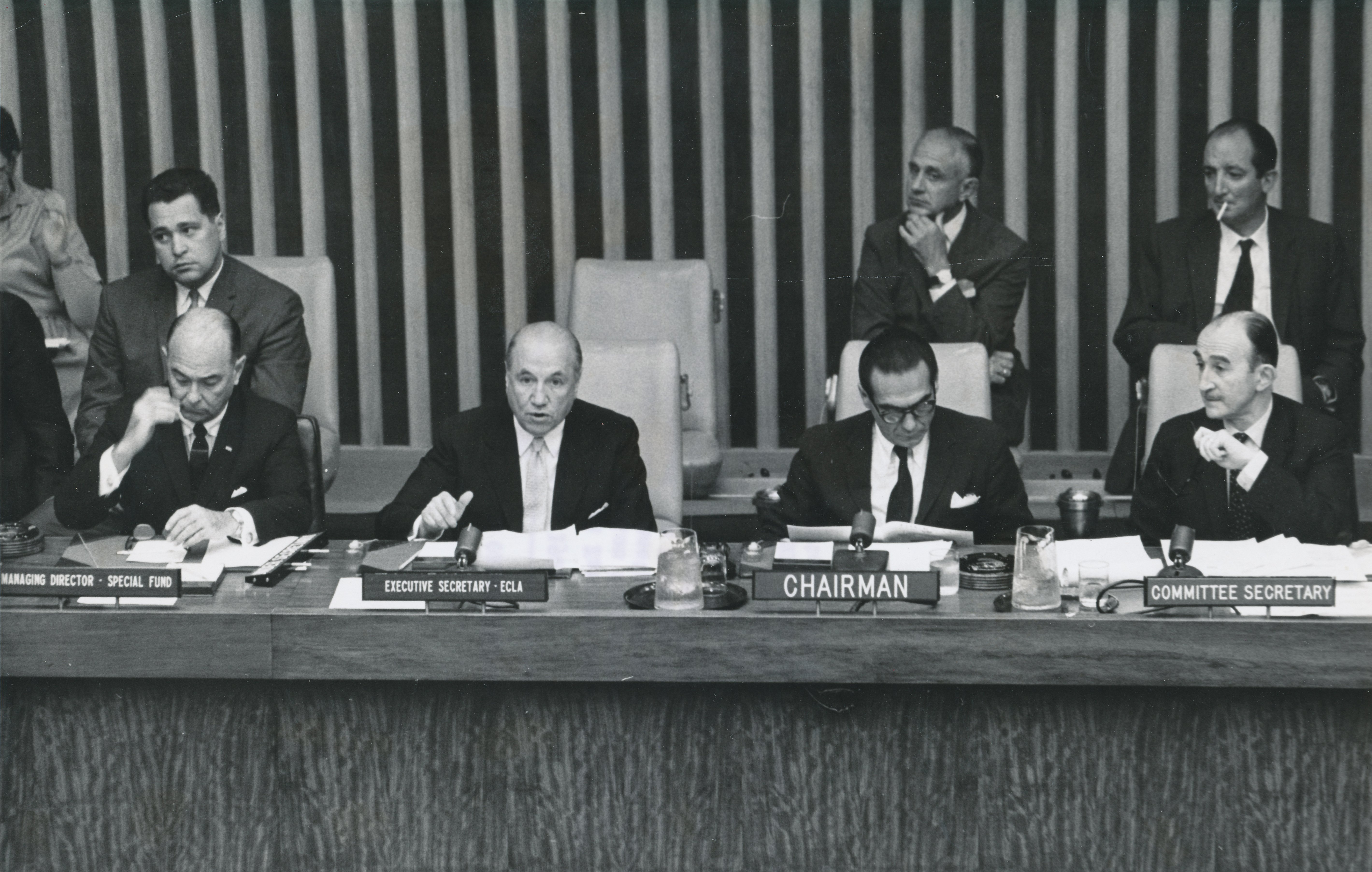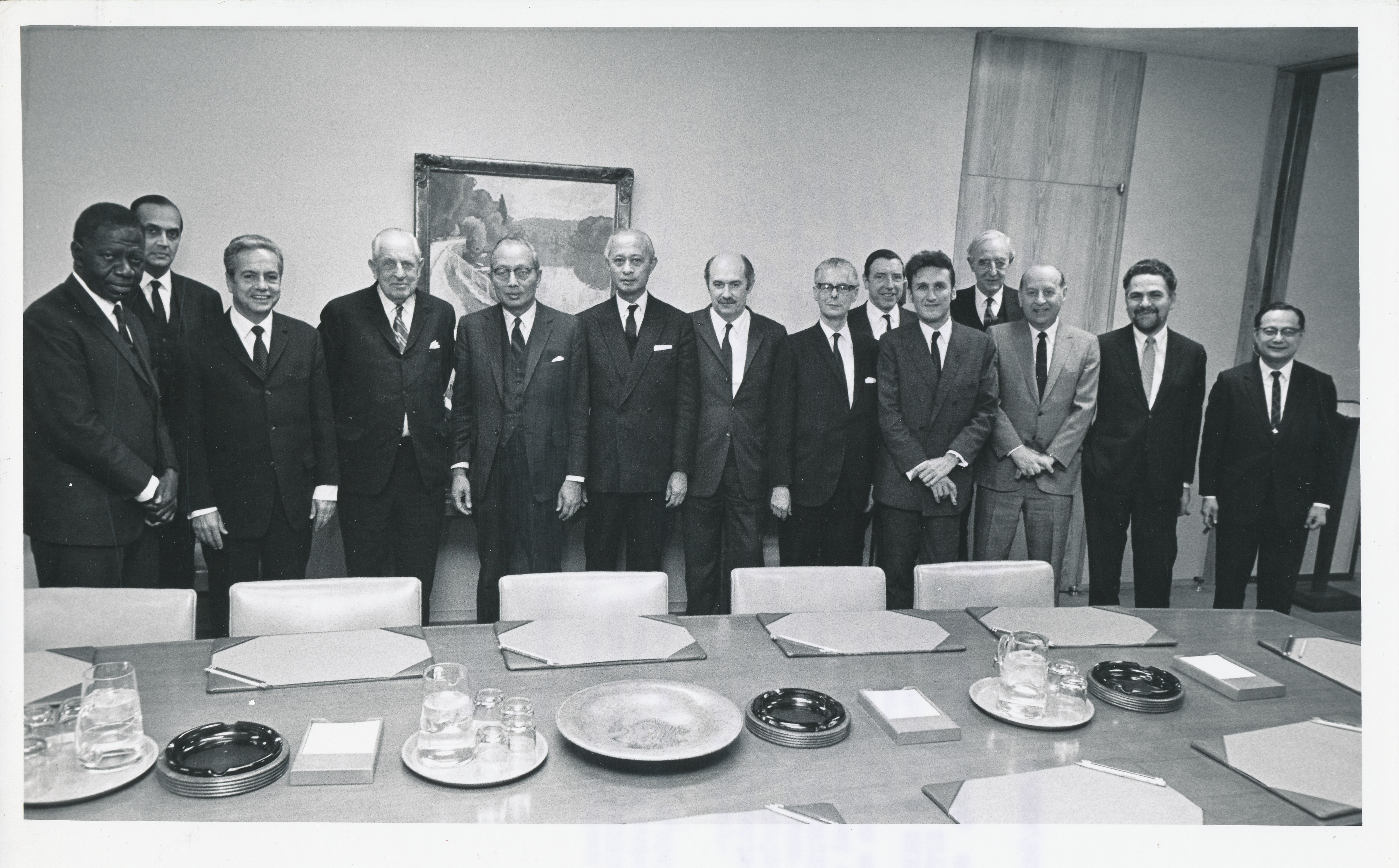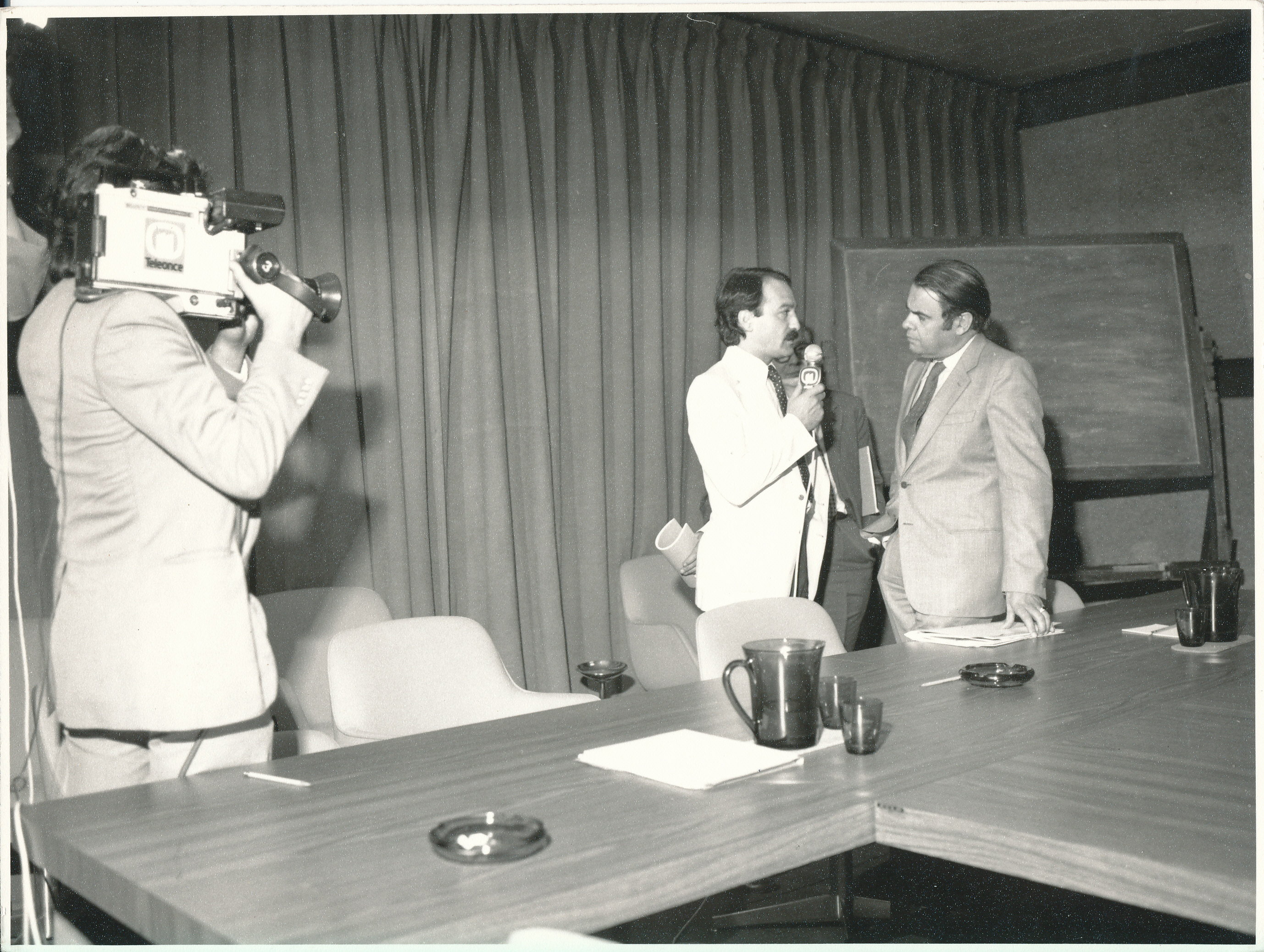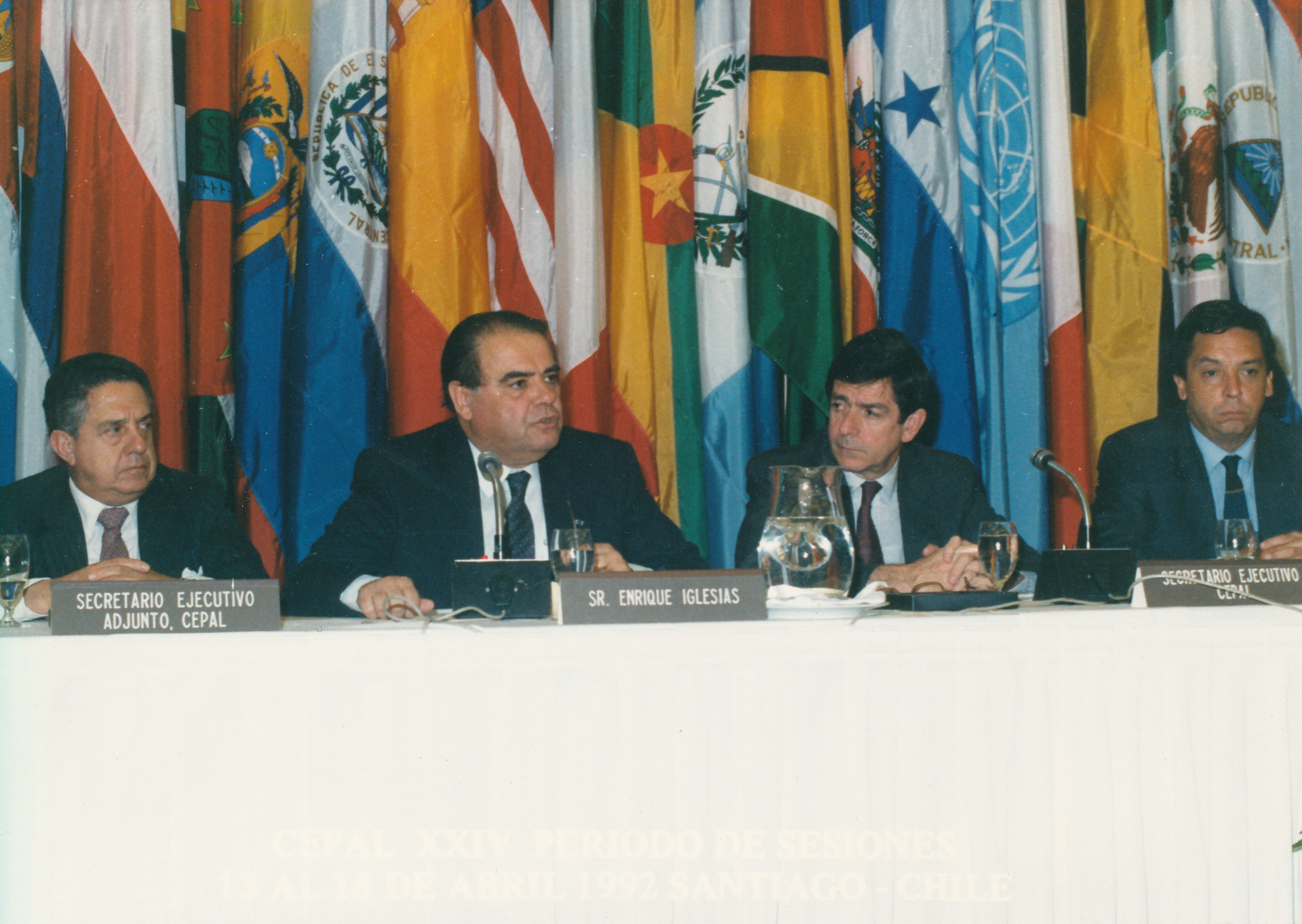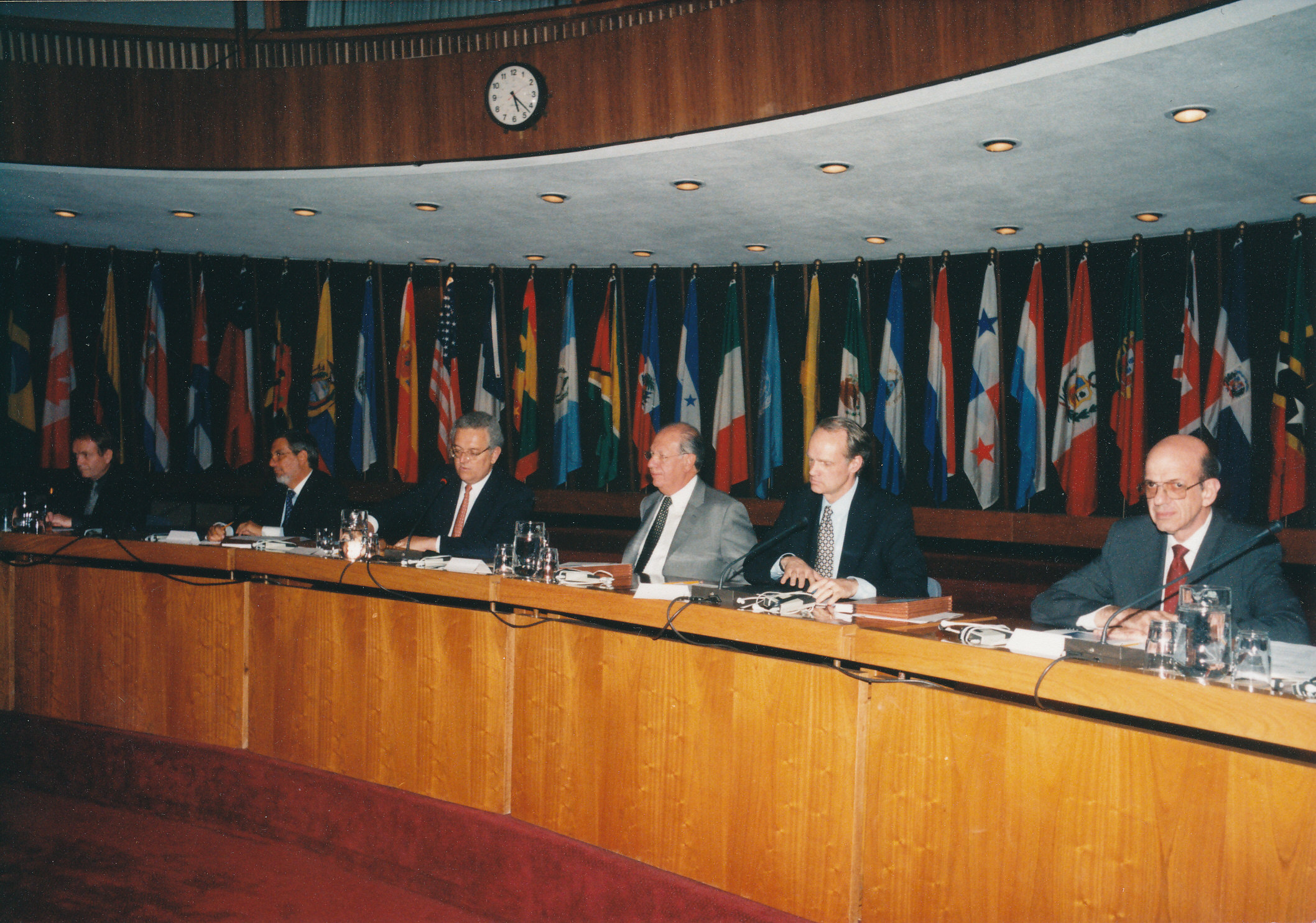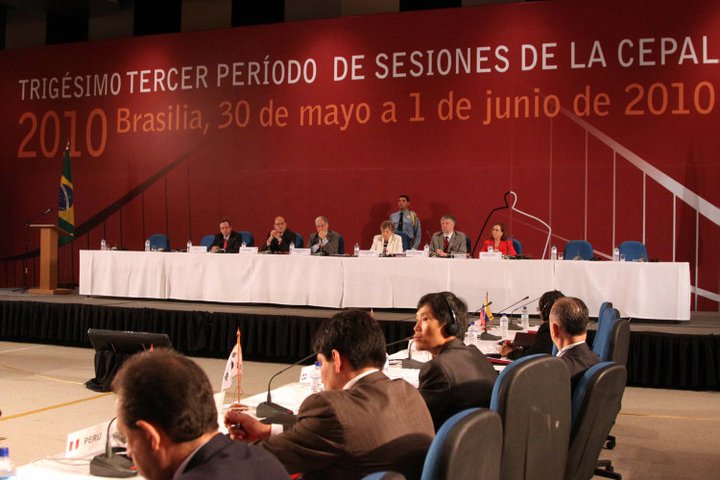75 years of ECLAC and ECLAC thinking
ECLAC development and structuralist thinking: a selection of texts

Credit: ECLAC, United Nations |
The Economic Commission for Latin America and the Caribbean (ECLAC) was established in 1948, as one of the five regional commissions of the United Nations, with the objective of collaborating with the governments of the region to improve lives and strengthen trade relations between member States and the rest of the world. To celebrate the seventy-fifth anniversary of the establishment of ECLAC, the Hernán Santa Cruz Library has produced this research guide, which brings together a selection of texts that reflect ECLAC thinking and key messages over the course of its seven and a half decades of existence. It gives an overview of the iconic works produced since the Commission’s establishment in 1948, as well as those of the structuralist (1950s–1980s) and neo-structuralist (1990s–present) periods. The guide also includes a selection of images from the ECLAC photo collection that tell the visual story of the history of the Commission, its work and its headquarters building. Photographs pertaining to different periods capture historic occasions, prominent personalities and important events in the Commission’s history. |
Stages of ECLAC's thinking
Eight historical stages can be identified in ECLAC's work, based on "core ideas" or "messages" related to the historical evolution of the Latin American region:
Selection of documents that review ECLAC thinking
-
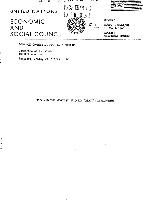 La CEPAL y el análisis del desarrollo latinoamericano
Call Number: E/CN.12/AC.61/10Publication Date: 13 de marzo de 1968
La CEPAL y el análisis del desarrollo latinoamericano
Call Number: E/CN.12/AC.61/10Publication Date: 13 de marzo de 1968 -
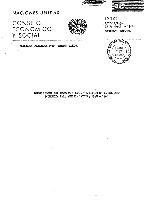 Breve reseña del trabajo y las actividades de la Comisión Económica para América Latina, 1948-1968
Call Number: E/CN.12/L.36Publication Date: 19 de abril de 1968
Breve reseña del trabajo y las actividades de la Comisión Económica para América Latina, 1948-1968
Call Number: E/CN.12/L.36Publication Date: 19 de abril de 1968 -
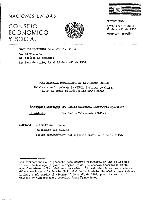 Acta resumida provisional de la primera sesión: celebrada en la sede de la CEPAL, Santiago de Chile, el 23 de abril de 1968
Call Number: E/CN.12/AC.61/SR.1Publication Date: 23 de abril de 1968
Acta resumida provisional de la primera sesión: celebrada en la sede de la CEPAL, Santiago de Chile, el 23 de abril de 1968
Call Number: E/CN.12/AC.61/SR.1Publication Date: 23 de abril de 1968 -
Raúl Prebisch: La Cepal, 30 años después
Publication Date: Diciembre de 1977En: Qué Pasa (Diciembre, 1977) -
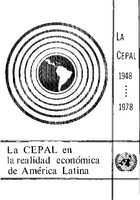 La CEPAL 1948-1978
Publication Date: 1978Serie de 5 títulos: La obra de la CEPAL según la comunidad internacional; El aporte de las "ideas-fuerza"; La CEPAL-gobiernos; La CEPAL en la realidad económica de América Latina; La CEPAL en breve
La CEPAL 1948-1978
Publication Date: 1978Serie de 5 títulos: La obra de la CEPAL según la comunidad internacional; El aporte de las "ideas-fuerza"; La CEPAL-gobiernos; La CEPAL en la realidad económica de América Latina; La CEPAL en breve -
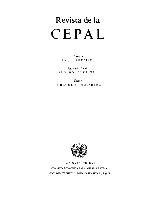 30 años de la CEPAL: exposición del Dr. Raúl Prebisch
by
Publication Date: 1978Publicado en: Revista de la CEPAL, No.6, p. 286-288
30 años de la CEPAL: exposición del Dr. Raúl Prebisch
by
Publication Date: 1978Publicado en: Revista de la CEPAL, No.6, p. 286-288 -
-
 Cincuenta años del pensamiento de la CEPAL: textos seleccionados
Call Number: LC/G.2699Publication Date: 1998Santiago: Fondo de Cultura Económica : CEPAL
Cincuenta años del pensamiento de la CEPAL: textos seleccionados
Call Number: LC/G.2699Publication Date: 1998Santiago: Fondo de Cultura Económica : CEPAL
2 volúmenes -
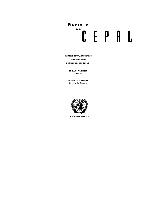 Revista de la CEPAL - Nro. Extraordinario: CEPAL cincuenta años
Call Number: LC/G.2037-PPublication Date: octubre de 1998
Revista de la CEPAL - Nro. Extraordinario: CEPAL cincuenta años
Call Number: LC/G.2037-PPublication Date: octubre de 1998
-
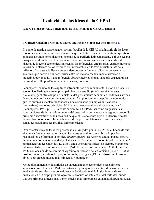 Evolución de las ideas de la CEPAL
by
Call Number: LC/G.2037-PPublication Date: octubre de 1998Publicado en: Revista de la CEPAL, No.RCEX01, pp. 21-45
Evolución de las ideas de la CEPAL
by
Call Number: LC/G.2037-PPublication Date: octubre de 1998Publicado en: Revista de la CEPAL, No.RCEX01, pp. 21-45 -
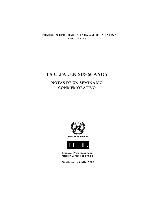 La CEPAL en sus 50 años: notas de un Seminario Conmemorativo -
Call Number: LC/G.2103-PPublication Date: julio de 2000
La CEPAL en sus 50 años: notas de un Seminario Conmemorativo -
Call Number: LC/G.2103-PPublication Date: julio de 2000 -
-
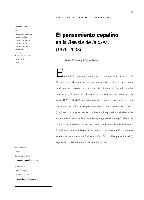 El pensamiento cepalino en la Revista de la CEPAL (1976-2008)
by
Publication Date: 2008Publicado en:Revista de la CEPAL, No.96, pp. 9-26
El pensamiento cepalino en la Revista de la CEPAL (1976-2008)
by
Publication Date: 2008Publicado en:Revista de la CEPAL, No.96, pp. 9-26 -
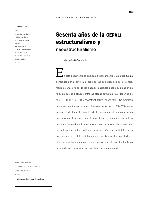 Sesenta años de la CEPAL: estructuralismo y neoestructuralismo
by
Publication Date: abril de 2009Publicado en: Revista CEPAL, No.97, pp. 173-194.
Sesenta años de la CEPAL: estructuralismo y neoestructuralismo
by
Publication Date: abril de 2009Publicado en: Revista CEPAL, No.97, pp. 173-194. -
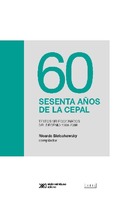 Sesenta años de la CEPAL: textos seleccionados del decenio 1998-2008
by
Publication Date: 2010
Sesenta años de la CEPAL: textos seleccionados del decenio 1998-2008
by
Publication Date: 2010 -
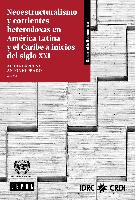 Neoestructuralismo y corrientes heterodoxas en América Latina y el Caribe a inicios del siglo XXI
by
Call Number: LC/G.2633-P/Rev.1Publication Date: abril de 2015Serie: Libros de la CEPAL - Desarrollo Económico No.132
Neoestructuralismo y corrientes heterodoxas en América Latina y el Caribe a inicios del siglo XXI
by
Call Number: LC/G.2633-P/Rev.1Publication Date: abril de 2015Serie: Libros de la CEPAL - Desarrollo Económico No.132 -
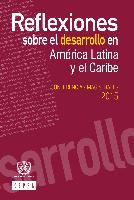 El pensamiento económico en la CEPAL: pasado y presente
Call Number: LC/G.2677Publication Date: marzo de 2016
El pensamiento económico en la CEPAL: pasado y presente
Call Number: LC/G.2677Publication Date: marzo de 2016 -
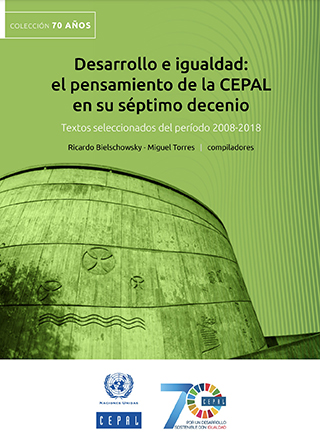 Desarrollo e igualdad: el pensamiento de la CEPAL en su séptimo decenio
by
Call Number: LC/PUB.2018/7-PPublication Date: 2018-05
Desarrollo e igualdad: el pensamiento de la CEPAL en su séptimo decenio
by
Call Number: LC/PUB.2018/7-PPublication Date: 2018-05


